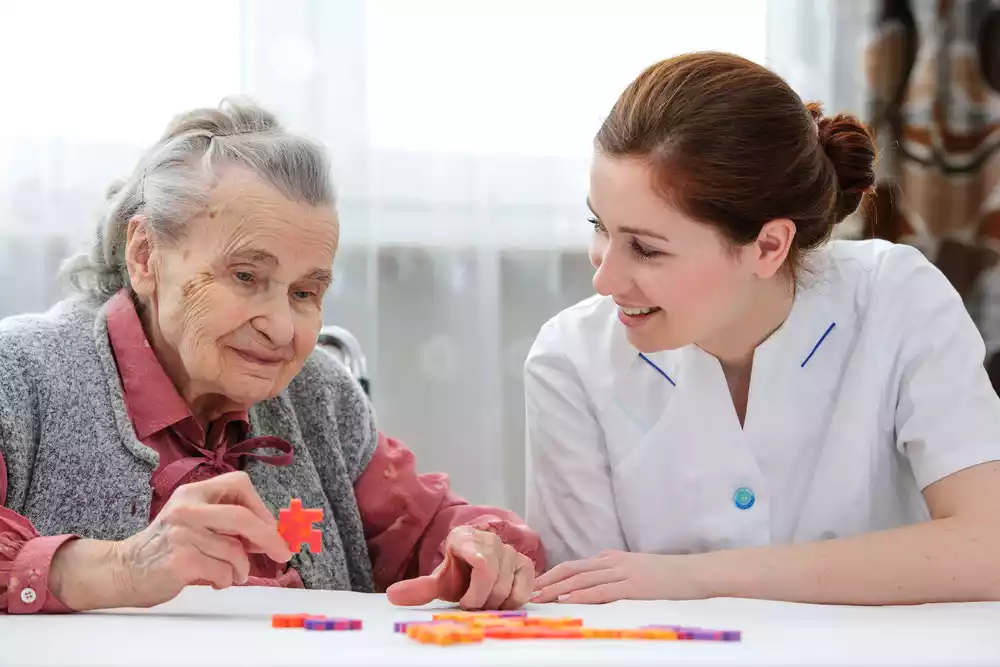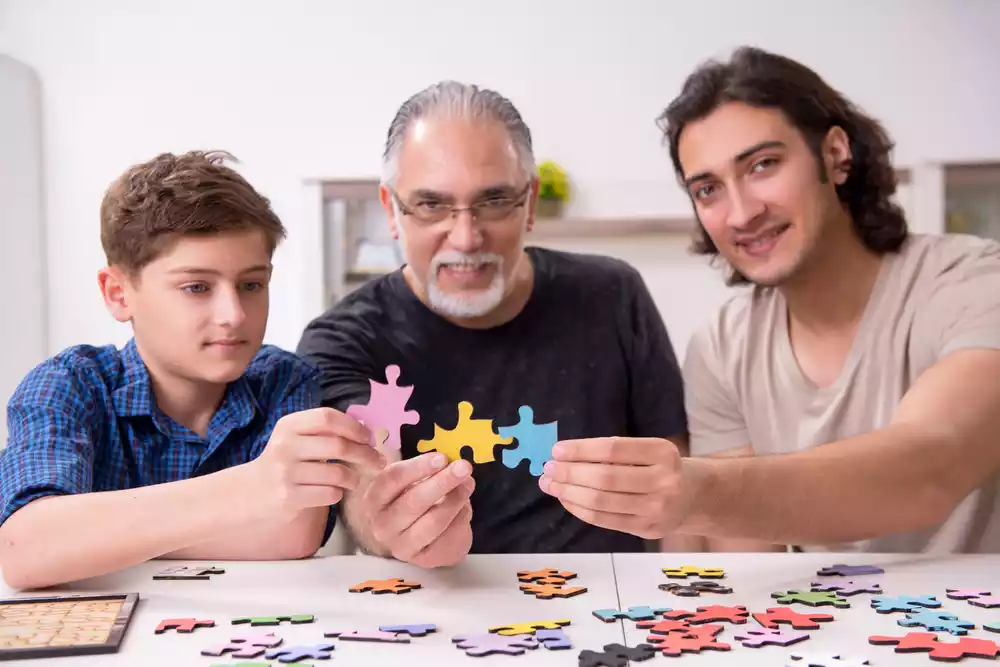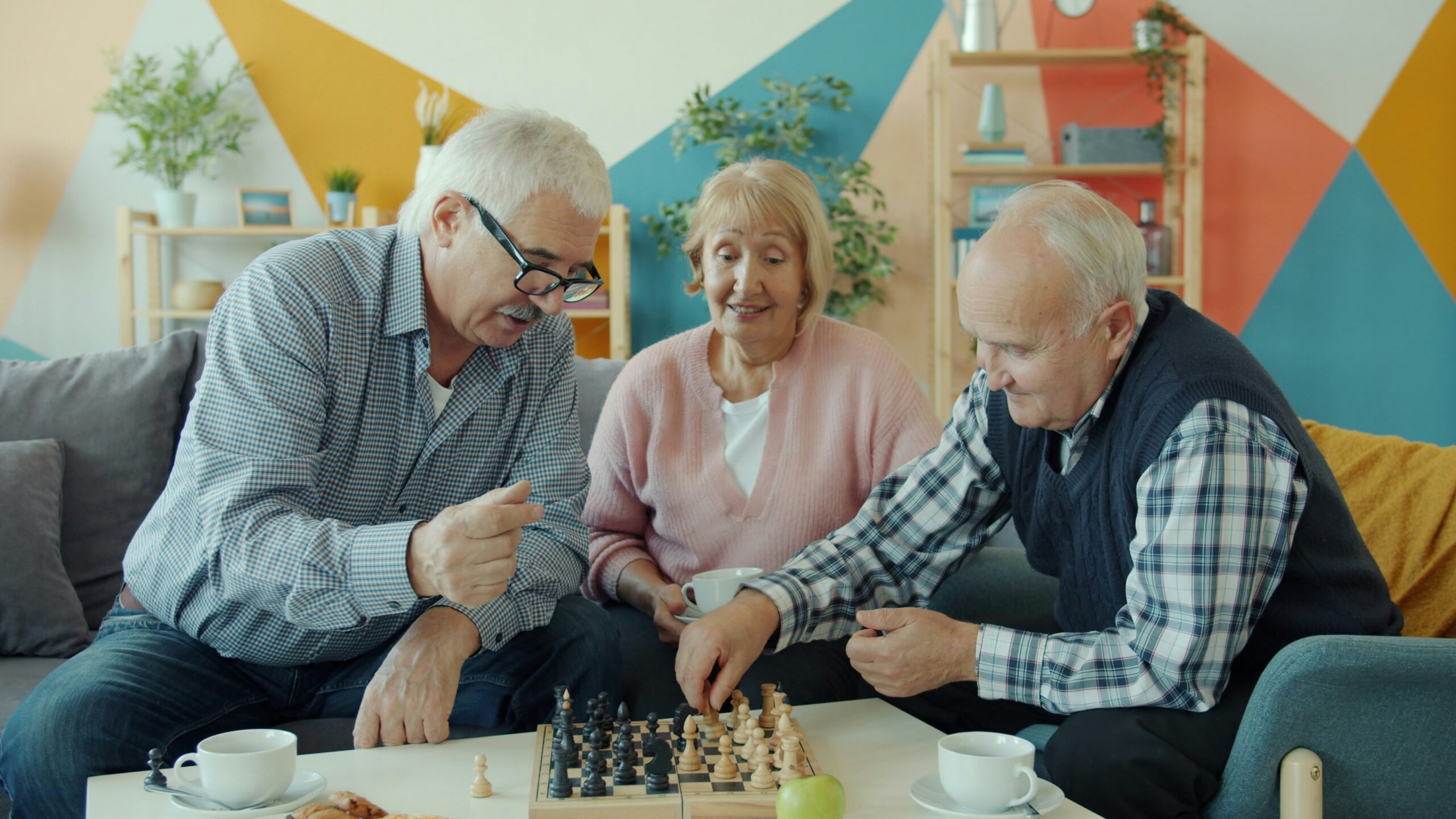As we journey through life, the advantage of lifelong learning becomes increasingly evident. Education for older adults presents opportunities for personal growth, cognitive stimulation, and social enrichment. Beyond traditional schooling, continuing education in older age can transform one’s personal and social experiences, fostering a vibrant and purposeful life.
Cognitive benefits of education for older adults
Engaging in educational pursuits significantly boosts cognitive functions among older adults. It keeps the mind active, sharp, and resilient, combatting the natural decline that can accompany aging.
1. Enhanced memory and cognitive function
Regular mental engagement strengthens brain connections, improving memory and cognitive function. Learning new subjects or skills exercises the brain in much the same way that physical fitness strengthens the body.
- Neuroplasticity: Education helps maintain and grow new connections in the brain, a concept known as neuroplasticity, which keeps cognitive decline at bay.
- Problem-solving and critical thinking: Delving into new subjects promotes problem-solving skills and improves critical thinking, empowering older adults to engage with their environment effectively.
2. Delay in cognitive decline
Participating in educational activities can slow cognitive deterioration, delaying the onset of conditions like dementia. The mental stimulation associated with learning encourages cognitive reserves to remain active.

Emotional and psychological benefits of education
Beyond cognitive improvements, education for older adults extends to emotional and psychological benefits that contribute to holistic well-being.
1. Sense of accomplishment
Engaging in continuous education fulfills a sense of achievement. Completing courses, learning new skills, or mastering a hobby provides an immense feeling of satisfaction and self-worth.
2. Boosted confidence and self-esteem
Confident and assertive behavior often follows the accomplishments gained from continuing education. The capacity to learn and adapt to new information reassures older adults that age is no barrier to growth.
3. Greater emotional resilience
Learning instills resilience and adaptability, which reduces stress and enhances the ability to cope with change. Education cultivates a positive outlook and attracts opportunities to experience new pursuits.
Social benefits of continued learning
Education for older adults fosters social connections, presenting opportunities to meet new people and forge lasting friendships.
1. Building community
Educational programs create a sense of community, connecting individuals with shared interests. Group discussions, workshops, and classes form networks that foster support and camaraderie.
2. Active participation in society
Continuing education empowers older adults to become actively involved in their communities. Engaging in local courses or workshops keeps individuals socially active and informed about communal affairs, contributing to a sense of purpose.
3. Bridging generational gaps
Education for older adults creates avenues for intergenerational interaction. Learning in a diverse environment encourages the sharing of knowledge and experiences, bridging generational gaps and fostering mutual respect.
Diverse learning opportunities for older adults

Educational opportunities for older adults are as diverse as the interests they pursue. The availability of learning platforms has expanded, making access to education easier than ever.
1. Community college courses
Many community colleges offer courses specifically for senior citizens. These classes range from art appreciation to history and are typically low-cost or free for older adults. On-campus learning provides both intellectual enrichment and opportunities for socialization.
2. Online learning platforms
Online platforms offer flexibility and convenience, enabling older adults to learn at their own pace from home. Websites offering video lectures, webinars, and interactive courses cover a diverse range of topics, accommodating any interest.
3. Workshops and local clubs
Libraries, community centers, and local clubs frequently hold workshops and informal classes catering to seniors. These settings are ideal for hands-on learning, such as crafts, gardening, or cooking, providing a casual environment for acquiring new skills.
Embracing lifelong learning
Questions often arise around the motivation to engage in lifelong learning: what’s next? How does an older adult get started, and what should they focus on?
1. Set clear objectives
Defining goals can help older adults select appropriate educational activities. Whether aiming to keep the mind sharp, exploring new interests, or meeting new people, having clear goals aids in creating a focused path.
2. Start small
Beginning with short courses or workshops can make it easier to integrate learning into daily life. Bite-sized lessons maintain engagement without overwhelming the learner.
3. Pursue interests and passions
Following personal interests and passions ensures that learning remains enjoyable and motivating. Education can revolve around hobbies, new languages, travel, or technology, anything that sparks curiosity.

A meaningful journey into continued education
The advantages of education for older adults extend beyond intellectual growth; they span emotional enrichment, social connections, and a renewed sense of purpose. By pursuing lifelong learning, older adults can enjoy a transformative experience that fosters joy, fulfillment, and an active engagement with life.
Embarking on lifelong learning
At Casa de Retiro El Mirador, we believe in empowering our residents through education and cognitive stimulation. As an esteemed memory care facility in Mexico, we provide diverse learning opportunities that cater to our residents’ interests and passions, enhancing their quality of life. Contact us today to learn more about how we incorporate educational programs into our care offerings, making lifelong learning a central part of our community.








